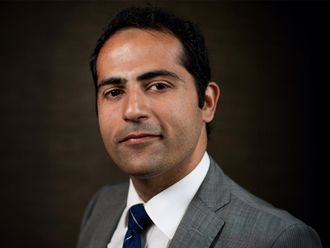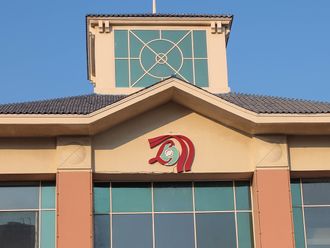
John Meriwether, Singapore may be just the place for you.
That's not what last week's headlines suggest. Singapore is reviewing rules for its investment-management industry, including hedge funds and private-equity outfits. It didn't cite Goldman Sachs Group Inc.'s troubles, yet regulatory tweaks are sure to mushroom everywhere and damp trading.
This could, oddly enough, benefit Asian financial hubs, which are wooing hedge funds. Singapore is even planning to create its own Greenwich, Connecticut — the playground of the Meriwethers and Paul Tudor Jones's of the world.
Those who argue hedge funds do humankind little good have a point. Meriwether's Long-Term Capital Management LP almost took the global financial system down with it in 1998. Yet no city can be a real global market centre while barring hedge funds from setting up shop. It's all about balance.
The Securities and Exchange Commission's fraud suit against Goldman is the vanguard of a Wall Street inquisition. As the process unfolds, it will shine a bright light on the ways in which investment banks and hedge funds interact. In Goldman's case, it's the bank's dealings with Paulson & Co. The focus will be more on the West's practices — not Asia's.
Asian conservatism
Three years ago, Asia was a centre of criticism on the part of investors. Regulations were said to be too tight, rules on leverage and proprietary trading too rigid, governments too sceptical of foreign bankers and financial innovation. That conservatism paid off following the events of 2008.
Banks in Asia hadn't bet big on subprime debt or gone overboard on collateralised-debt obligations. It's a key reason why the region held its ground while major economies such as the US went into freefall. And today, Asia's less permissive regulatory environment is more an asset than a liability.
As the pendulum swings toward greater accountability in Washington, you can bet the process will go further than investors want. That may be needed to right an economy in which finance has become bigger and more influential than it ever should have.
Investigations into Goldman allowing hedge-fund manager John Paulson to select securities he wanted to bet against without informing investors will beget others. It's the price the US will pay for spending the last 25 years removing safeguards against markets taking the entire economy with them when they go off the road.
As the process unfolds and the subpoenas fly, investors will be looking for an oasis. That place may be Asia.
A decade ago, hedge funds were blamed for Asia's financial crisis. In Malaysia, for example, then-Prime Minister Mahathir Mohammad assailed billionaire George Soros for the ringgit's slide. Throughout Asia, public sentiment turned against foreign funds, regardless of whether they were short-sellers or long- term value investors.
The push now in cities from Kuala Lumpur to Seoul is to become global financial hubs. Greater openness to even the most aggressive foreign investors is a sign of confidence that Asia's financial systems have come of age.
Asia must be careful not to go too far. We now understand that one of US-style capitalism's biggest flaws is skewed incentives. Massive paychecks and bonuses drove the supposedly best and brightest to Wall Street, where great rewards awaited the biggest risk takers. Going into science or engineering, running large corporations or launching start-ups lost its appeal to working on trading floors.
Recipe for disaster
More people looking to manage wealth than create it is a recipe for disaster. The absence of reform since the crash of 2008 meant it was business as usual, and the return of massive bonuses is proving it. That was, until the SEC came down on Goldman. The step was a game-changer and any crackdown on hedge funds will partly bear Goldman's fingerprints.
Asia was wise not to follow the US's flawed model in lockstep. What Robert Rubin, Treasury secretary in Bill Clinton's administration, saw as intransigence a decade ago now looks like enviable prescience. What officials under President George W. Bush saw as timidity on financial matters now bears study in Washington.
The obvious alternative is Asia. The region's impressive growth is just part of the story. Markets here are less researched and liquid than Western ones, which means there are plenty of the inefficiencies that hedge funds look for.
Bond markets in Asia are a work in progress and many of the largest initial public offerings in the years ahead will be in this region. Policy makers also are seeking to attract firms to expand as the US and Europe go the other way.
Singapore is Exhibit A. Its plans for a Greenwich-like cluster of investment outfits follow tax and regulatory incentives for funds to set up shop there. They are helping the industry grow from near zero in 1997 to almost 140 firms today.
Singapore hardly wants to be host to a debacle like Long-Term Capital Management, which explains its review of investment rules. There's reason to believe, though, that Asia will avoid the market excesses that devastated the US economy.
William Pesek is a Bloomberg News columnist. The opinions expressed are his own.












